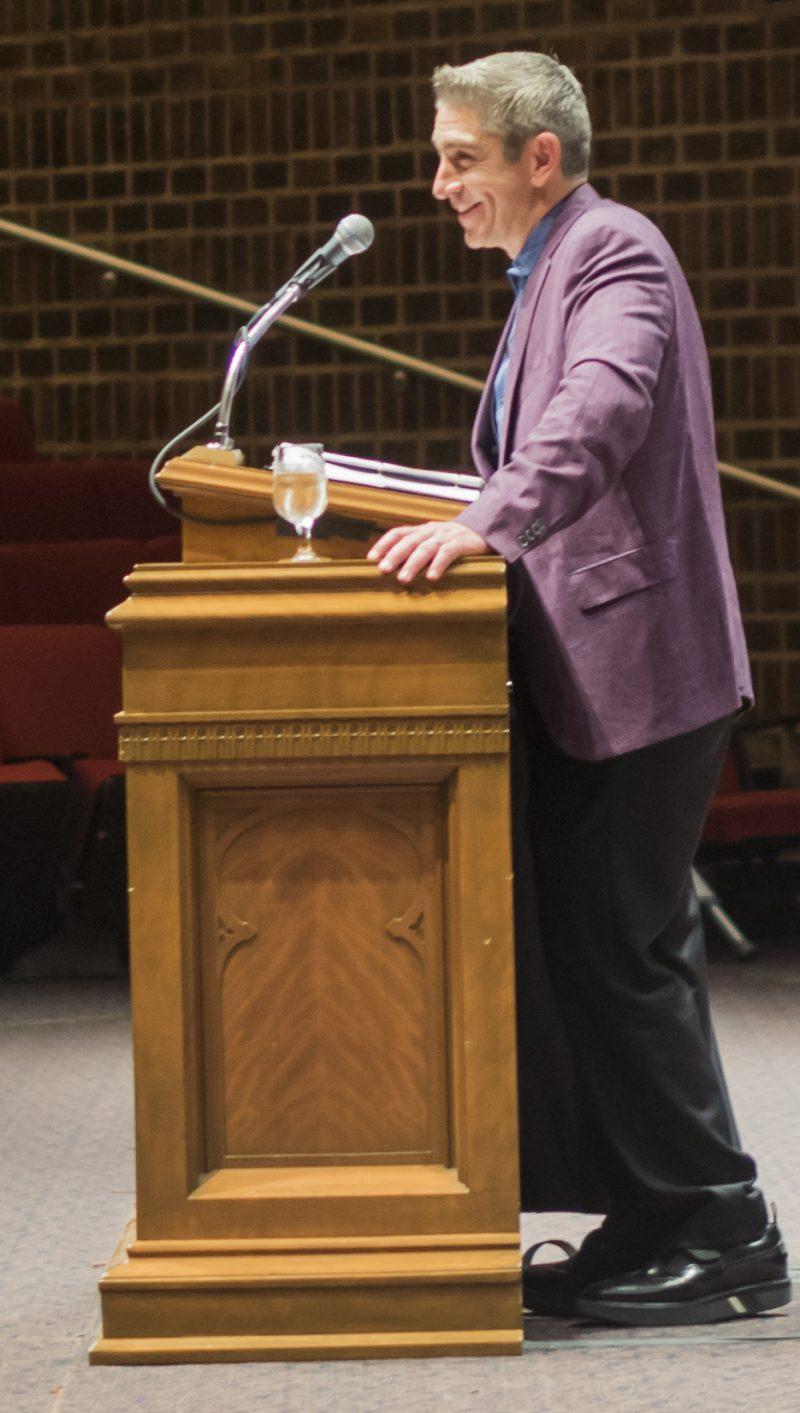Richard Blanco, author of “The Prince of Los Cocuyos” and this year’s Reading TUgether lecturer, spoke on Wednesday evening in Laurie Auditorium to members of the Trinity and San Antonio community about his life growing up in Miami as “a little, chubby, gay, Cuban-American kid.”
Every year, the Reading TUgether book selection committee chooses a book for the greater Trinity community to read. Then, once first-year students arrived at Trinity, some discussed the book in their First-Year Experience (FYE) classes. After New Student Orientation, first-years attended the TUgether lecture to hear from the author about the process of writing the book and more about the themes.
First-years received their books in the mail — provided by academic affairs — and did a summer research assignment using the library database. Additionally, the students completed surveys detailing their research experience in high school and their experience after the assignment. Lastly, they submitted photos that answered the prompt “Where I’m From.”
Anne Graf, the FYE librarian, was in charge of giving feedback on each assignment and of keeping track of the data collected from the surveys. Library staff members will use the surveys to improve first-years’ transitions to research-based papers.
“It’s sort of both, for us to learn where they are, and to give them a chance to reflect on what was maybe challenging or on what they enjoyed so that they can kind of take ownership over that process of how to become researchers too,” Graf said.
This year, the Reading TUgether book selection committee, made up of about nine faculty and staff members, chose “The Prince of Los Cocuyos” after reading several books before the summer and contacting authors to see who was available to visit Trinity. This year, the FYE, A Successful Life, adopted the book to discuss in class. Michael Soto, associate vice president of academic affairs head of the committee, anticipated this before choosing the memoir.
“We think about the appropriateness for students making the transition from high school to college, we think about whether or not the book might get adopted by an FYE course or other courses on campus, and we also want to make sure that that person is an engaging and dynamic speaker. I think we hit a home run with Richard Blanco in that respect,” Soto said.
Before the lecture, Blanco spoke about his hope to show the audience that all people can relate to his struggles with identity.
“I think sometimes we think that because this is a story of a chubby, gay, Cuban-American gay kid that you have to be a chubby, gay, Cuban-American kid to get it. I want them to walk away with the sense that, look — this is our story; it’s not just my story, it’s our story. So I hope they walk away owning the story and realizing our common human denominators, our common humanity,” Blanco said.
At the lecture, Blanco captivated the audience by explaining the significance of excerpts from his memoir and poems dedicated to several people from his book.
By the end of his talk, Blanco urged the first-years to continue to grow from their experiences in college.
“Never ever ever stop becoming. Always ask yourself, ‘Who is the next me?’ ” Blanco said.







